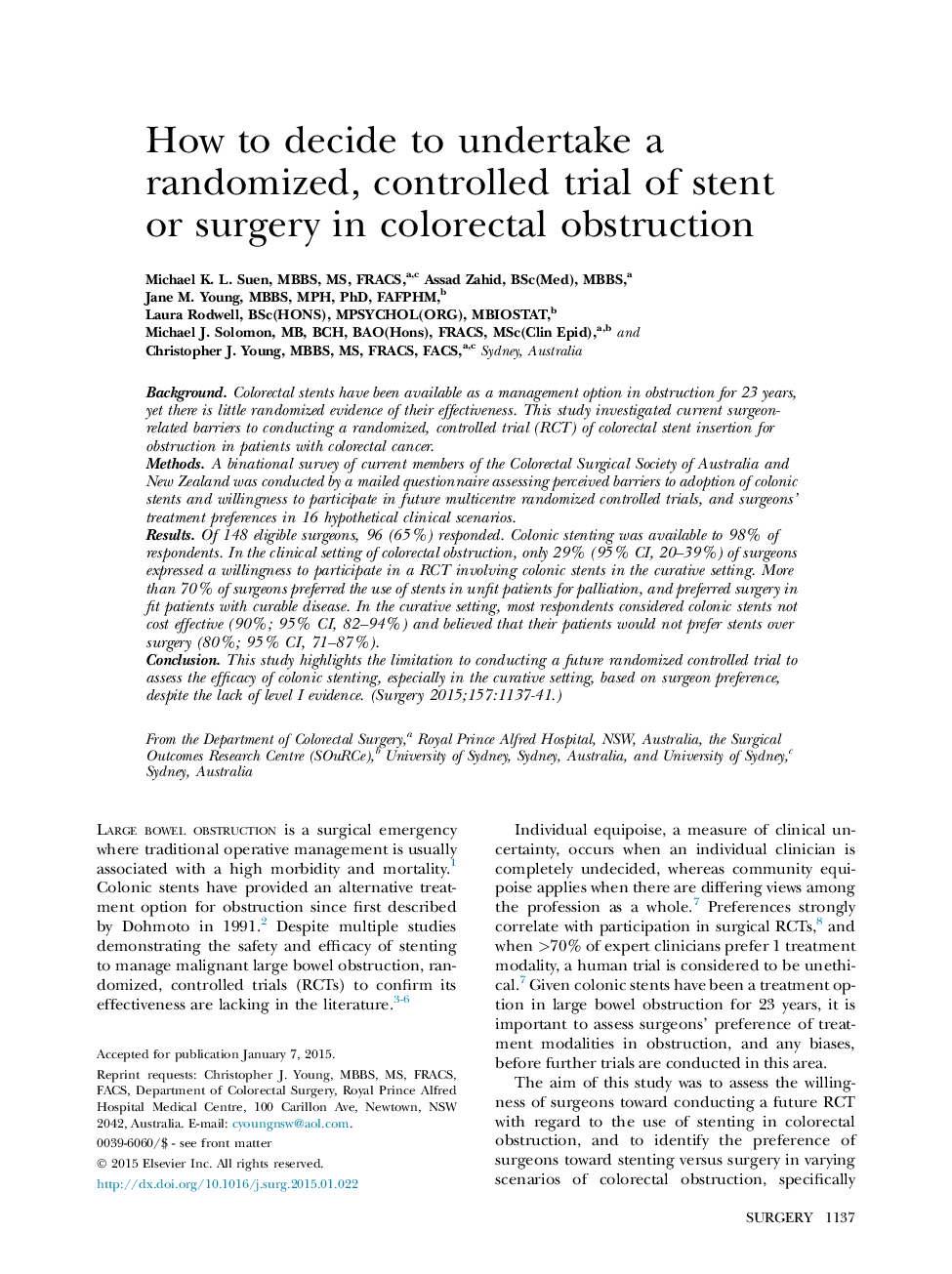| Article ID | Journal | Published Year | Pages | File Type |
|---|---|---|---|---|
| 6255166 | Surgery | 2015 | 5 Pages |
BackgroundColorectal stents have been available as a management option in obstruction for 23Â years, yet there is little randomized evidence of their effectiveness. This study investigated current surgeon-related barriers to conducting a randomized, controlled trial (RCT) of colorectal stent insertion for obstruction in patients with colorectal cancer.MethodsA binational survey of current members of the Colorectal Surgical Society of Australia and New Zealand was conducted by a mailed questionnaire assessing perceived barriers to adoption of colonic stents and willingness to participate in future multicentre randomized controlled trials, and surgeons' treatment preferences in 16 hypothetical clinical scenarios.ResultsOf 148 eligible surgeons, 96 (65%) responded. Colonic stenting was available to 98% of respondents. In the clinical setting of colorectal obstruction, only 29% (95% CI, 20-39%) of surgeons expressed a willingness to participate in a RCT involving colonic stents in the curative setting. More than 70% of surgeons preferred the use of stents in unfit patients for palliation, and preferred surgery in fit patients with curable disease. In the curative setting, most respondents considered colonic stents not cost effective (90%; 95% CI, 82-94%) and believed that their patients would not prefer stents over surgery (80%; 95% CI, 71-87%).ConclusionThis study highlights the limitation to conducting a future randomized controlled trial to assess the efficacy of colonic stenting, especially in the curative setting, based on surgeon preference, despite the lack of level I evidence.
